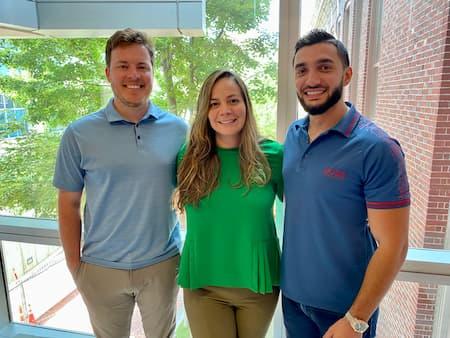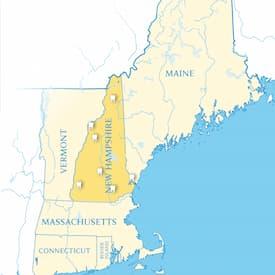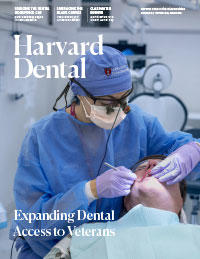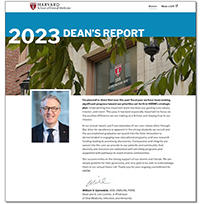
New Hampshire’s scenic beauty stretches from the state’s rocky coastline to the majestic White Mountains, however behind its picturesque image is a less idyllic landscape for dental care. Access to care is challenging for rural populations in the Granite State, particularly for those with medically complex cases or special needs. Just last year, the state began to cover basic dental care for adults on Medicaid, yet less than 15 percent of the state’s 850 dentists are participating thus far. With no dental school of its own, New Hampshire is looking outside of its borders to expand its dental workforce. A newly launched Harvard School of Dental Medicine (HSDM) advanced graduate program aims to bridge the gap by training rural dentists at seven remote care delivery sites in the state. This fall, the first three dental residents are enrolled in the program.
“We’re delighted to participate in this partnership with clinical sites in rural New Hampshire to provide dental care and to train the next generation of dentists in care of rural populations. It is our hope that many of the dentists will choose to stay in the state upon completion of their residencies,” said Dr. Catherine Hayes, chair of the Department of Oral Health Policy and Epidemiology and Dental Public Health program director.

One of those dentists is Dr. Carmen Luisa Guerra. Originally from the Caribbean Island of Margarita, Guerra recently completed her DMD degree at the University of New England College of Dental Medicine. During her first rotation she will be located at a dental practice in Keene, New Hampshire. The second location she will visit once a month is Coos County Family Dental in the small town of Berlin in northern New Hampshire. In Coos County, just miles from the Canadian border, two in 10 adults have not had access to a dentist in the past five years, which is more than double the statewide average.
“I saw an opportunity like no other with this program to help a population that has lacked care for a long time and learn from multiple preceptors and different settings,” said Guerra. “This is also an excellent opportunity to explore several towns in New Hampshire, where the demands for dentists are incredibly high, before making a major moving decision.”
Guerra and her co-residents in the program will rotate through seven clinical locations throughout New Hampshire stretching from the far northern border to the coast. In her first month of the program, Guerra has already observed unmet care needs that are critical to address.

“The biggest issue for these rural communities is access to care. It takes a long time to get an appointment, and often patients have no means of transportation or are too far away. This is why these rural practices are of great relevance to the population. Also, the majority of the patients I treat are special care needs patients,” she said.
The one-year AEGD–Rural Track certificate offers a stipend and tuition-fee waiver funded by a grant from the Health Resources and Services Administration (HRSA). The program is designed to expand the pipeline of dental professionals in rural areas and create opportunities for dentists to become more proficient in providing quality health care focused on population health and social determinants of health. Residents must be a graduate of a CODA-accredited dental school with a DMD or DDS degree and must be a U.S. citizen or permanent resident.
Dr. Hassan Mohammed Salih, a resident in the AEGD–Rural Track program who earned his DDS at Indiana University School of Dentistry, was attracted to the opportunity to make an impact. The program will give him exposure to patient populations with critical needs—from individuals living in homeless shelters to those living with dementia in home care settings.
“My participation in this program has afforded me valuable insights and exposure to the pressing needs of underserved and low-income communities, particularly in the realm of oral and general healthcare,” Salih said. “I am genuinely delighted to be in a position where I can contribute and assist to the best of my abilities. Providing the necessary care that the community deserves is both an honor and a responsibility that I eagerly embrace."


